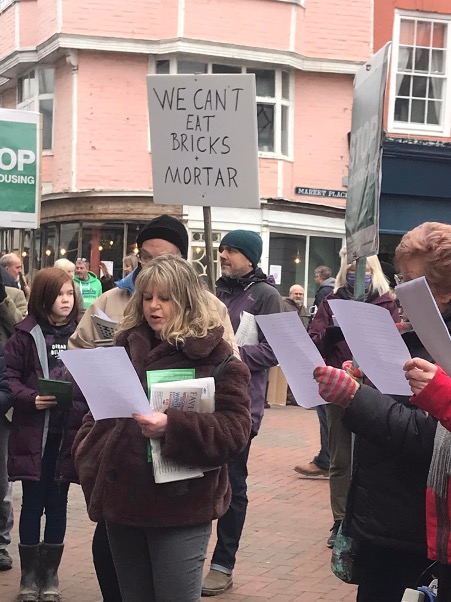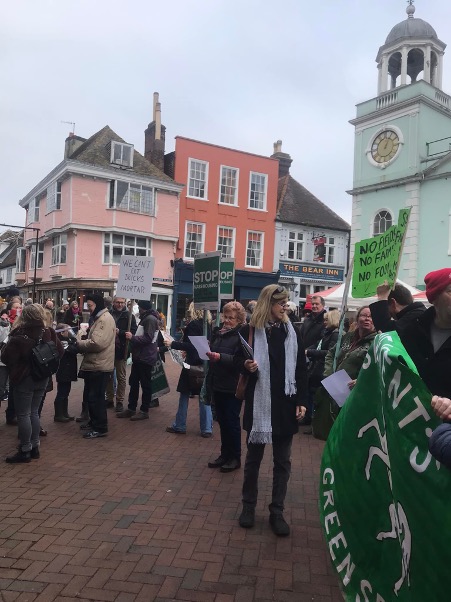Peaceful protests in the Kent town of Faversham have said there may be further demonstrations, in response to the planned development work in the historic town.
“The proposed development is on the best and most versatile farmland that is currently producing our food” Vicky Ellis, General Manager of CPRE Kent, said. “Nature and wildlife are being squeezed out in favour of unaffordable housing and the infrastructure around Faversham is at capacity”
The charity CPRE, who’s focus is conserving greenspace from development such as this, organised a peaceful march last Saturday, involving 200 people walking through Faversham’s historic streets. Rock legend Bob Geldof was also seen protesting the development, on a separate occasion.
This Comes after the High Court ordered Swale Borough council to pay £20,000, as part of a settlement, to developer Quinn Estates, after concerns about delays were raised that the Duchy of Cornwall had not properly consulted the public for the plans to build the new homes.
The details of the new homes were unveiled in early October of last year. Locals have voiced their fears that the new suburbs will restrict valuable farmland and exacerbate traffic issues.
The plan for the proposed ‘South East Faversham’ involve developing 2,500 new homes, which are purported to be almost entirely powered by renewable energy sources.
“it’s actually really nice to see people coming out and caring about the local plan process”, Councillor Ben Martin, representing Watling ward, said. “We should be pointing out waste water issues. We should be pointing out issues on potential water scarcity, we should be pointing out issues involving the environment, and those are being taken into consideration in the local plan process”.

Cnr. Ben Martin also commented on how difficult it can be to develop on brownfield sites, an often-suggested alternative to greenfield sites. “In some cases, its undesirable to develop on Brownfield sites. There are brownfield sites that you couldn’t build on now because they are nature reserves, or sites of special scientific interest”.
The land that the Duchy of Cornwall plans to transform 320 acres of farmland along the M2, between junctions 6 and 7.
The Duchy of Cornwall owns roughly 53,000 hectares of land in 23 counties in England. The revenues which have been collected from this land goes directly to the Duke of Cornwall, Prince Charles, who usually donates it to private and charitable activities.
The Duchy has yet to submit a planning application to the Borough Council.

